Strategies to Help Manage Allergic Asthma

Know Your Allergens
You can take steps to keep them out your airways. But only if you know what they are. That’s where an allergist comes in. They can test your skin or blood to find out exactly what you’re allergic to. Common triggers include pet dander, dust mites, pollen, cockroaches, rats, mice, or mold.

Keep Them at Bay in the Bedroom
Buy hypoallergenic dust mite covers for your pillows and mattresses. Wash your bedding once a week in hot water and dry in high heat. Remove any stuffed animals from your child’s room or wash them along with the bedding. Vacuum carpet weekly. Better yet, put in hard flooring if you can. Keep cats and dogs out of the bedroom. But if you or your child has serious pet allergies, it’s best to rehome your furry friends.
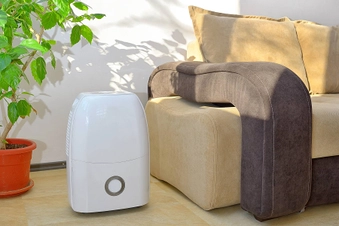
Control Humidity
Dust mites and mold thrive in warm, wet conditions. Try to keep indoor humidity below 50%. It’s easier to do that when the temp in your home is below 72 F. But a dehumidifier can also help. Get a standalone device for each room or install one that’ll remove moisture throughout your home. If you have central heating and air conditioning, replace the HEPA filter once a month.
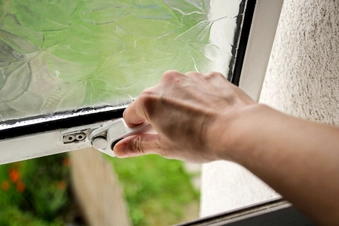
Keep Windows and Doors Closed
Pollen and outdoor mold spores can float through the air and into your home. These tiny allergens can even get through screens on your windows, doors, or porches. If possible, cool your home with air conditioning. Fans can stir up dust and mold that might bother your airways.

Exercise Inside
Jog on the treadmill, do yoga, or download a workout routine on your smartphone. Whatever gets your heart pumping, it’s best to sweat it out indoors during allergy season. Certain apps or websites can tell you about pollen and mold counts in your area. That includes the American Academy of Allergy, Asthma & Immunology.
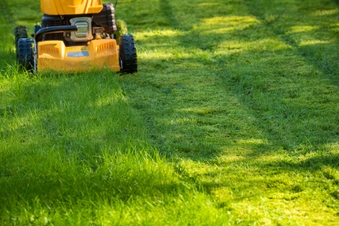
Get Someone Else to Mow Your Lawn
You’ll stir up lots of grass pollen if you cut your lawn. So it’s best to avoid this chore completely if you can. If not, wear a face mask, pants, and a long-sleeved shirt. Sunglasses or goggles can give your eyes a little more protection. Be sure to shower and change into fresh clothes when you’re done.
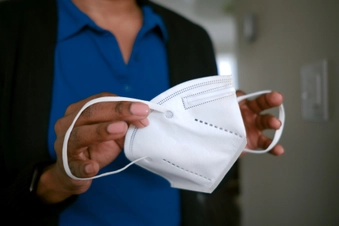
Wear a Face Mask
This’ll up your protection from pollen, pollution, and pet dander. But masks also lessen exposure to respiratory viruses. That’s important because infections like cold, flu, or COVID-19 can trigger asthma. Whether you’re gardening or going to the grocery store, all kinds of face masks are safe for people who have asthma. Ask your doctor which might be best for you. They might suggest a three-layer reusable cloth mask, disposable surgical mask, or a KN95 mask.
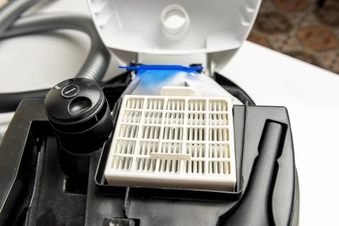
Vacuum Weekly
Get rid of dust, dirt, and pet dander on a regular basis. Choose a vacuum that uses a HEPA filter and comes with a bag if possible. You can breathe in allergens if you have to empty a canister yourself. You can find more information on allergy-friendly vacuums online. The Asthma and Allergy Foundation of America website is a good source.
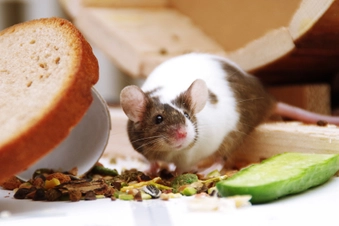
Get Rid of Pests
You might be allergic to poop, spit, or other tiny particles that cockroaches and rodents leave behind. Keep pests away by cleaning dirt and crumbs from your kitchen countertops. Seal any cracks in your house. And put a lid on anything that might be a food source, including trash.
If that’s not enough, set out baits or traps. You might need to avoid or limit use of pesticide sprays. Harsh chemicals can bother your airways.
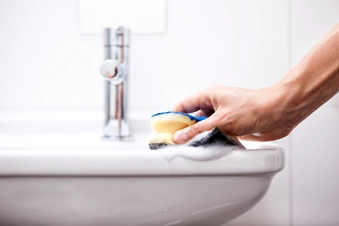
Tidy Up Your Kitchen and Bathroom
Clean surfaces with soap and water. If you notice mold, it’s OK to use diluted bleach or cleaner if it doesn’t trigger your asthma. Or get someone else to scrub away mold for you. Put in an exhaust fan in your bathroom if you don’t have one already. Wash or replace your shower curtain routinely. And check for any hidden leaks or moisture. Mold can grow on pretty much anything that’s wet.

Avoid Strong Smells
You might not be allergic to someone’s perfume. But scents can still trigger your asthma. That includes odors from candles, plug-in air fresheners, cleaning supplies, or personal-care products. When possible, look for “fragrance-free” on the label.
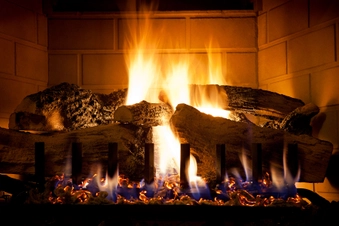
Stay Away from Smoke
It can be cozy to sit next to a wood-burning fire. But you might breathe in smoke or fumes that can make your asthma worse. A natural gas fireplace should be OK.
If you smoke cigarettes, talk to your doctor about quitting. Don’t let anyone else light up around you either.

Talk to Your Doctor
Let your allergist know if lifestyle changes aren’t enough. Long-term damage to your lungs is possible if your asthma isn’t well-controlled. But treatments can help. You might need antihistamines, inhalers, allergy shots, or other drugs like biologics. Your doctor can help you figure out what’s right for you.
Show Sources
IMAGES PROVIDED BY:
- Science Photo Library / Getty Images
- Rossella De Berti / Getty Images
- mady70 / Getty Images
- Kinga Krzeminska / Getty Images
- Westend61 / Getty Images
- Jan Hakan Dahlstrom / Getty Images
- Grace Cary / Getty Images
- turk_stock_photographer / Getty Images
- Holger Langmaier / EyeEm / Getty Images
- Westend61 / Getty Images
- SDI Productions / Getty Images
- ryasick / Getty Images
- Thomas Barwick / Getty Images
SOURCES:
Kirsten Kloepfer, MD, associate professor of pediatrics, Indiana University School of Medicine; pediatrics, allergy & immunology; Riley Allergy & Asthma (Riley Children’s Health/Indiana University Health).
Farheen Mirza, MD, allergy and immunology, Northwestern Medicine Central DuPage Hospital in Illinois.
Asthma and Allergy Foundation of America: “Allergens and Allergic Asthma,” “Can People With Asthma Wear Face Masks?” “Cockroach Allergy.”
Frontiers in Pediatrics: “Allergen Avoidance in Allergic Asthma.”
Cleveland Clinic: “Do Hypoallergenic Pillow and Mattress Covers Really Work for Allergies?”
Mayo Clinic: “Allergy-proof your home.”
American Academy of Allergy, Asthma & Immunology: “National Allergy Bureau,” “Mowing Down Your Grass Allergies,” “Do Your Part To Slow The Spread Of COVID-19: Wear A Face Covering Or Mask.”
American Lung Association: “Reduce Asthma Triggers.”